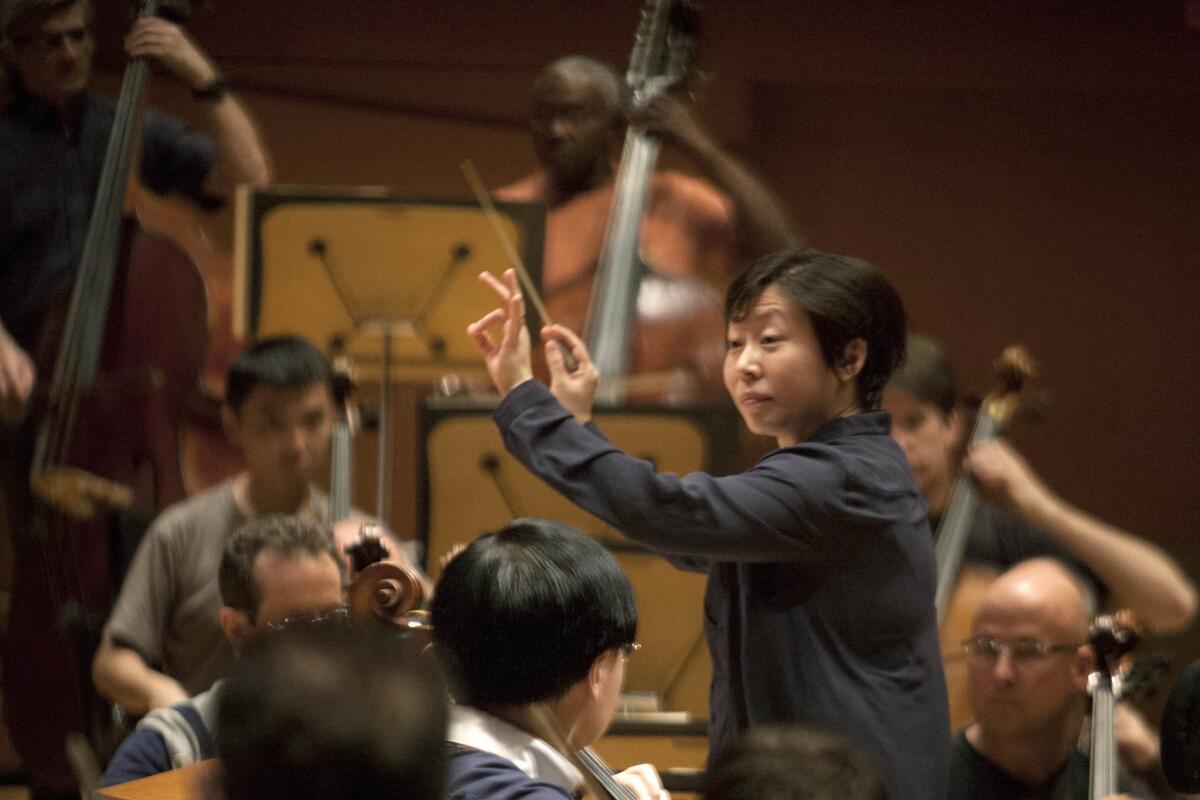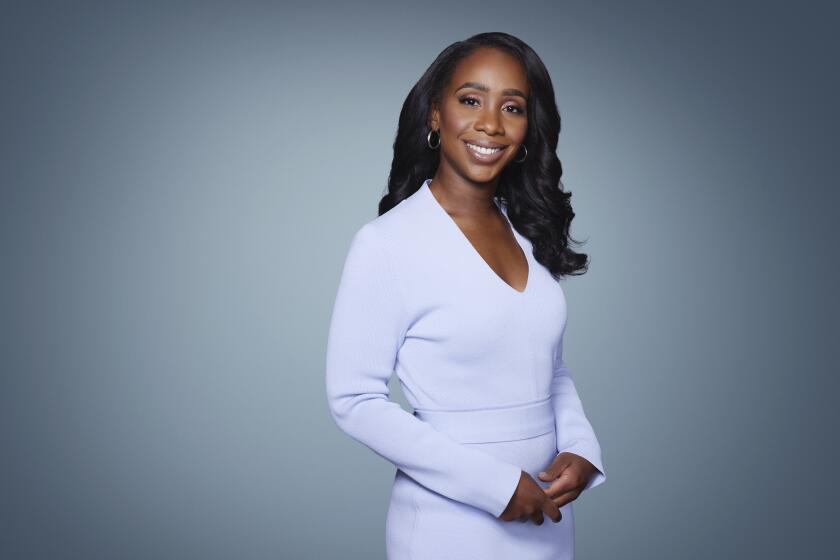SoCal arts groups courting a new donor source: Chinese Americans

Old money, meet new yuan.
The Los Angeles Philharmonic has never held a concert to officially mark Chinese New Year, but that changes Thursday night when the Phil kicks off a three-concert series featuring Chinese soloists at Walt Disney Concert Hall.
FULL COVERAGE: Inside the Los Angeles Philharmonic
The Wallis Annenberg Center for the Performing Arts also took note of Chinese New Year, making it the theme of its first gala last month.
------------
For the Record
Feb. 20, 12:30 p.m.: An article about arts groups courting Chinese American donors refers to Jennifer Cheng as the chair of the Irvine Barclay Theatre. She stepped down from the post in 2014 and was succeeded by Robert Farnsworth
------------
The events aren’t exactly coincidental. The L.A. Phil and the Wallis, as with other arts organizations in Southern California, are actively courting the support and donations of Chinese Americans.
“We’re always looking for opportunities to engage new donors, and you’re going to find those people in the audience,” said Tania Camargo, managing director of the Wallis. “So with the Chinese American community, of course, we’re aware they’re becoming more involved philanthropically, and that’s encouraging.”
The Wallis’ Jan. 31 gala honored Eva Hsieh, the wife of Chinese-born billionaire Ming Hsieh, the founder of Cogent Systems (acquired in 2010 by 3M). The couple gives millions of dollars annually through its foundation, including $50 million to USC, Ming Hsieh’s alma mater.
“I think the priority is to engage with diverse communities in L.A., and if in time that translates into a gift, that’s great,” Camargo said. “It’s not the other way around.”
Even so, with a median income that exceeds the national average, and a cultural heritage that prizes the arts, it’s little wonder that Chinese Americans would be seen as a promising source of donations. But there are challenges. Many wealthy Chinese Americans are immigrants who don’t have strong connections to L.A.’s cultural institutions.
To change that, the L.A Phil is making a “serious effort” to attract larger Chinese American audiences, which it hopes will translate into financial support, said Deborah Borda, the orchestra’s president and chief executive.
“This doesn’t happen overnight. But the key is to get them in,” she said.
Sign up to receive our Essential Arts & Culture Newsletter
For wealthy Chinese Americans living in L.A., arts philanthropy is a relatively new concept, said Dominic Ng, chairman and chief executive of East West Bank. Philanthropists among them have tended to give to the sciences, education and healthcare.
But this is likely to evolve, Ng said.
“Within a decade from now, there’s no question in my mind there will be major donations to museums and other groups. As Chinese Americans continue to prosper, they will naturally expand their involvement in the community,” he said.
San Francisco and New York are both ahead of Los Angeles in coaxing philanthropic dollars from Chinese Americans, noted Andrew Ho, contributing editor of the Asian Philanthropy Forum, partly because those cities have larger wealthy populations of Chinese Americans. The San Francisco Symphony and the New York Philharmonic both hold Chinese New Year concerts; this year, the Metropolitan Museum of Art’s annual Costume Institute gala will also focus on China’s influence on the arts. Actress Gong Li is a gala co-chair.
Arts leaders in Los Angeles appear determined to catch up. The new Academy Museum of Motion Pictures in Mid-City has received a $20-million pledge from billionaire Wang Jianlin’s Dalian Wanda Group. In San Marino, the Huntington Library has raised $42 million for its partly completed Chinese Garden, with about half that money coming from donors with Chinese heritage, according to Rebecca Shea, a development officer who heads fundraising for the garden.
June Li, who served as founding curator of the Chinese Garden, noted that the project received donations from across the country.
“There have been a lot of Chinese Americans around San Marino who helped, but also those who lived elsewhere,” she said. “I think it awoke a need to learn more about their heritage.”
Other local cultural groups that have expressed interest in courting Chinese American audiences and donors include the L.A. Chamber Orchestra and the Pasadena Playhouse.
Earlier this month, the L.A. Chamber Orchestra held its first benefit tied to the Chinese New Year, raising approximately $535,000 with a dinner and concert program featuring Chinese soloists.
“It’s critical that we consider how to engage this community meaningfully,” said Rachel Fine, the chamber orchestra’s executive director.
The playhouse’s leadership has said at recent public forums devoted to diversity in the theater that it intends to engage more actively with the San Gabriel Valley’s Chinese community. Artistic director Sheldon Epps declined a recent request to comment further.
In L.A., a small number of Chinese Americans have become regular donors to some of the area’s biggest arts groups.
Sue Tsao, a U.S.-based philanthropist originally from Taiwan, is on the board of overseers of the L.A. Phil and the board of directors of the Center Theatre Group. Michael Chow, the restaurateur who hails from Shanghai, and his wife, Eva, are active on the museum scene.
Michael Chow is a collector and sits on the board of governors of the Broad art museum in downtown L.A, which opens in September. Eva Chow, who is Korean-born, is a trustee of the L.A. County Museum of Art, where she has co-chaired the annual Art + Film Gala.
In certain respects, Orange County-based arts groups have made more headway in attracting Chinese American donors than their L.A. counterparts. The Irvine Barclay Theatre at UC Irvine is chaired by Jennifer Cheng, whose late parents, Arlene and George, gave extensively to cultural groups like the Barclay and the Orange County Performing Arts Center, now the Segerstrom Center for the Arts.
The Irvine Barclay’s main hall is named after the Chengs, whose Pasadena-based family foundation is managed by their children.
Jennifer Cheng said that in the past, none of the major L.A. performing arts groups approached them for support. “It’s interesting that they haven’t, because our mission is supporting the performing arts,” she said.
But recently, the Chengs have donated to the new USC Glorya Kaufman School of Dance, and they provide regular support for the Huntington, including money for a lecture series about Chinese Americans in California.
S.L. Huang, a physicist educated at Cal Tech in Pasadena, and his wife, Betty, have given to the Segerstrom, the Pacific Symphony and South Coast Repertory, all of which are based in Costa Mesa.
“They all have a lot of educational programs, and my husband and I like to focus on education,” said Betty Huang. The couple, who has a home in San Juan Capistrano, also has donated extensively to Cal Tech.
Huang added: “We think of ourselves as Americans. We don’t necessarily think of ourselves as Chinese American donors. When we donate, we’re just one of them.”
More to Read
The biggest entertainment stories
Get our big stories about Hollywood, film, television, music, arts, culture and more right in your inbox as soon as they publish.
You may occasionally receive promotional content from the Los Angeles Times.











